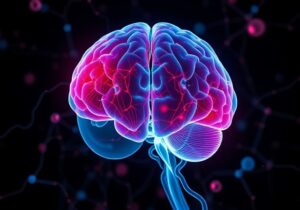Kidney stones can be painful and disruptive, but proper care after treatment can help prevent recurrence and ensure a smooth recovery. At Life Care Hospital Annexe, we emphasize patient education to minimize future risks. Here’s a complete guide on precautions for kidney stones and how to maintain urinary health.
Understanding Kidney Stones
Kidney stones are hard deposits formed from minerals and salts in the urine. These stones can vary in size, from tiny grains to larger structures that block the urinary tract. Common symptoms include severe back pain, blood in urine, and frequent urination.
What Causes Kidney Stones?
Several factors contribute to kidney stone formation, including:
- Low fluid intake
- High salt or protein-rich diets
- Obesity
- Family history of kidney stones
- Medical conditions like gout or diabetes
Precautions for Kidney Stones After Treatment
Taking preventive steps after treatment is critical to avoid future episodes. Follow these essential tips:
1. Stay Hydrated
Drinking enough water helps dilute urine, reducing the risk of stone formation. Aim for at least 2.5 liters of fluid daily to flush out toxins and minerals.
2. Modify Your Diet
- Reduce Sodium: A high-salt diet can increase calcium in the urine, leading to stone formation.
- Balance Calcium Intake: Avoid excess calcium supplements, but don’t eliminate calcium-rich foods unless advised by a doctor.
- Limit Oxalate-Rich Foods: Spinach, nuts, and chocolate are high in oxalates, which contribute to calcium oxalate stones.
- Choose Low-Protein Options: High-protein diets can increase uric acid, a common component of stones.
3. Monitor Fluid Types
While water is best, drinks like lemon water can help. Lemon contains citrate, which prevents stone formation. Avoid sugary and caffeinated beverages as they may increase stone risks.
How to Avoid Kidney Stones
Preventive measures go beyond hydration and diet. Here’s what you can do:
Regular Checkups
Consult a urologist in Thane at Life Care Hospital Annexe for periodic evaluations, especially if you have a family history of stones or other risk factors. Early detection can prevent complications.
Medications
Certain medications may help, such as diuretics or drugs that reduce uric acid levels. Always follow your doctor’s prescription and recommendations.
Lifestyle Adjustments
- Maintain a healthy weight. Obesity is linked to increased kidney stone risk.
- Exercise regularly to improve overall metabolic health.
Managing Pain and Recovery
Experiencing discomfort during recovery is normal. Here’s how to get instant pain relief from kidney stone symptoms and ensure healing:
Pain Management
Use prescribed medications like tamsulosin to relax the urinary tract and ease stone passage. Over-the-counter pain relievers may also help.
Rest and Relaxation
Avoid strenuous activities during recovery. Rest supports your body’s healing process and minimizes discomfort.
Follow-Up Care
Schedule follow-up appointments with a urologist in Thane at Life Care Hospital Annexe to monitor recovery and identify any potential issues early.
Why Choose Life Care Hospital Annexe?
At Life Care Hospital Annexe, we provide comprehensive care for kidney stones, from diagnosis to treatment and long-term prevention. Our team of skilled urologists ensures personalized care tailored to your needs.
Services We Offer
- Advanced diagnostic imaging
- Surgical and non-surgical treatments for kidney stones
- Customized diet and lifestyle plans for prevention
Whether you’re seeking advice on kidney stone precautions or need ongoing support, our team is here to help.
Take Charge of Your Kidney Health Today!
Kidney stones can be managed effectively with the right care and lifestyle changes. By following these precautions for kidney stones and consulting experts at Life Care Hospital Annexe, you can reduce your risk and lead a healthier life.
For appointments or more information, contact us today!
Read More: Comprehensive Obstetrics-Gynaecology Care at LifecareAnnexe







